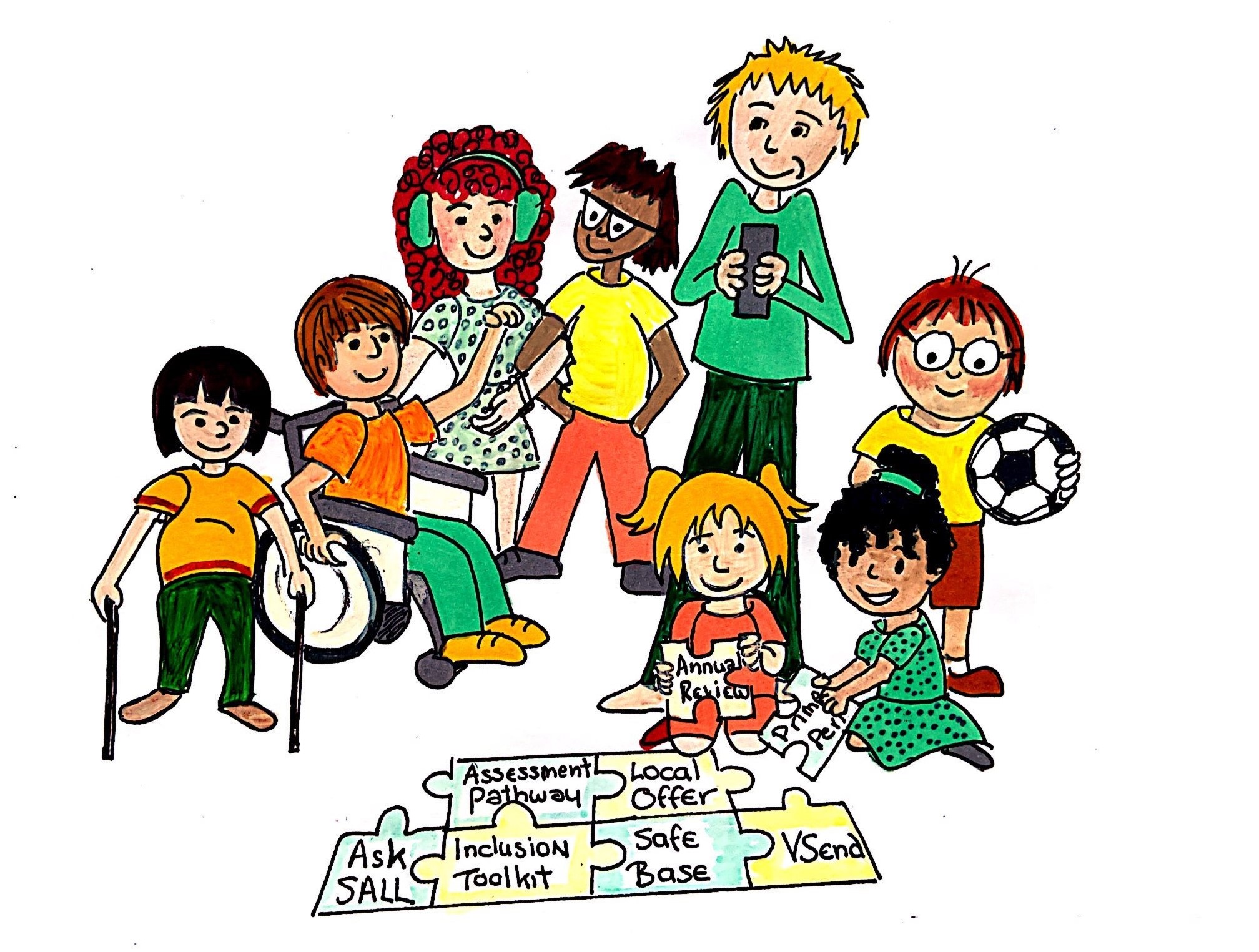Level 7-10 strategies to support highly specialised interventions
0-5
High quality teaching, targeted and specialist strategies, approaches and adaptations for pupils should be implemented and supplemented
- some children with more complex needs may be making progress in much smaller steps. Developmental Journals can support with the tracking of progress in these instances
- children need a high level of input to develop receptive and expressive language skills and speech sounds to enable them to access learning and make relationships
- settings should follow the assess-plan-do-review cycle to monitor progress using the EYFS Development Matters document
- This should include provision of:
- small group input to target communication and social skills guided by external professionals
- visual support - photos or visual timetable, symbols to direct children and offer choices, communication mats or books create an inclusive environment promoting independence and participation
- adults awareness and use of supportive strategies such as following the child’s lead, commenting, extending language, using repetition
- support and training for parents
- emphasis on support for transitions
- a monitoring system should be in place to assess the child’s needs, identify outcomes, implement support and monitor and evaluate progress.
- planned reviews including the parent and child should take place regularly
5-16
- access to a highly personalised differentiated curriculum
- use of equipment to access the curriculum
- pupil would benefit from:
- a low arousal environment
- highly structured
- highly engaging learning areas or pods
- very small group teaching
- a highly visual learning environment
- personalised interactive learning displays
- use of visual supports such as Numicon, colour coding,
- explicit teaching of social skills
- colourful semantics and Blank Language Model
- intensive interaction. Lego therapy, Talkabout, Circle of Friends
- specialised teaching style and tasks are adapted to suit pupil’s learning style. For example, visual support, task plans, visual timetables, use of symbols, high levels of scaffolding
- individualised support to implement recommendations from SALT service
- structured individual programmes
- advice and assessment of the use of specialist or adapted ICT to access the curriculum, alternative augmented communication. For example, communication aid, Makaton
- access to mentor or buddy systems
- disapplication from certain subjects if appropriate or necessary and in agreement with parents or carers
- the use of specialist or adapted equipment and software in all lessons to access the curriculum
- specialised modification of all teaching and learning
- specialist teaching focusing on both learning curriculum and social or emotional skills throughout the school day
- facilitate production of differentiated materials
- adult support to access an individualised curriculum
- highly visual teaching strategies common place to support spoken word
- structured 1:1 teaching using TEACCH principle
- planned support and adaptations during breaks and lunch
- thorough and timely preparations made for transition, both between year groups and between settings
- consideration will need to be made to support the pupil during periods of change. For example, Christmas, sports day, off timetable events, trips
- support around understanding diagnosis and what it means to the individual
- high levels of adult support alongside a teacher-led individualised curriculum which includes:
- specialist teaching for academic learning which allows for challenge and independent work
- exploring their identity and understanding their needs or diagnosis


